“Every one who has heard and learned from the Father comes to me.”
John 6:45
Michael Denz - Director of Adult Faith Formation
Great Catholic Links
The Catechism of the Catholic Church
Eternal Word Television Network
Find Mass Times Anywhere in USA
Apologetics - Defending the Catholic Faith
National Catholic Register Newspaper
"Take my yoke upon you, and learn from me; for I am gentle and lowly in heart, and you will find rest for your souls."
Matthew 11:29
The Most Sacred Heart of Jesus
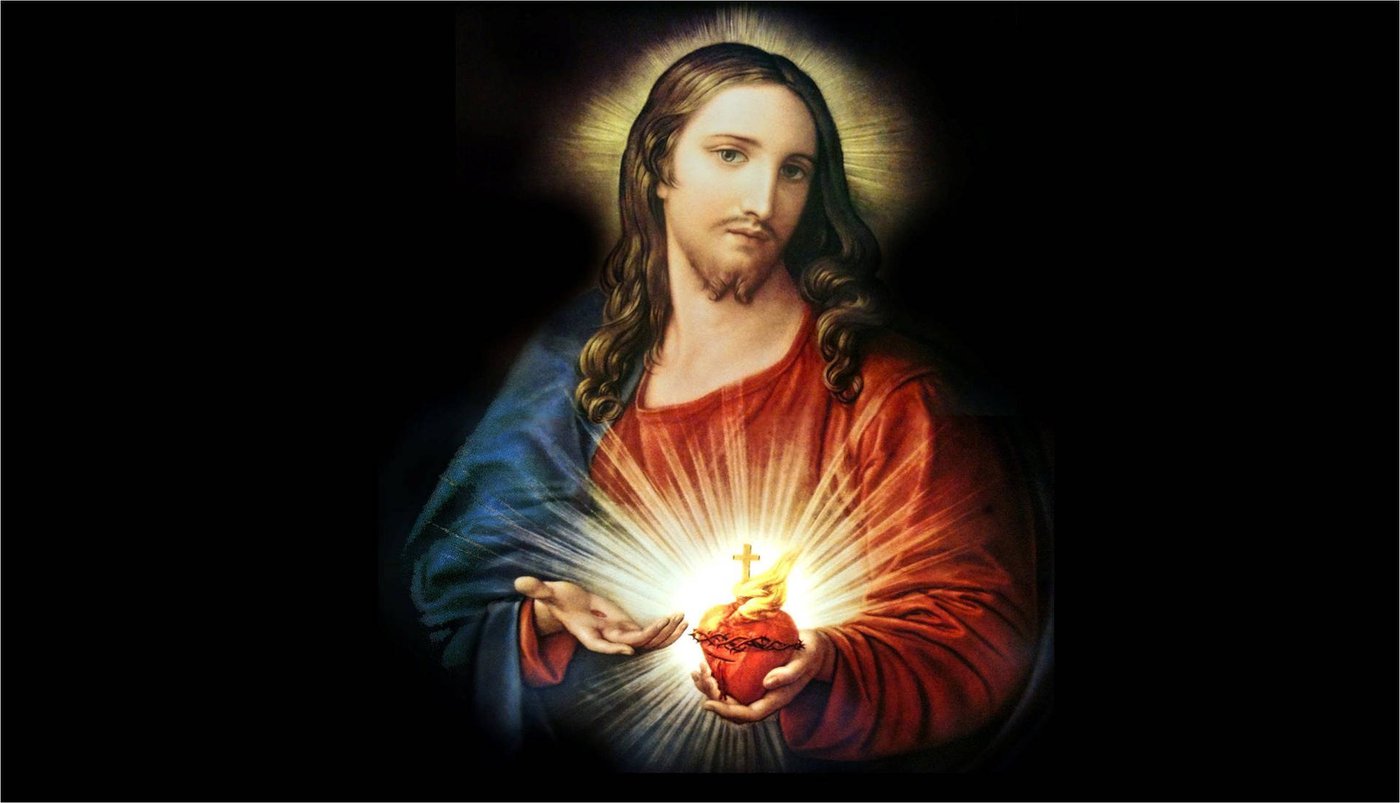
What is the Solemnity of the Most Sacred Heart of Jesus?
This is a moveable feast that honors the Sacred Heart. In 1675, Jesus told St. Margaret Mary that He wanted the Feast of the Sacred Heart to be celebrated on the Friday after the Corpus Christi octave. In 1856, the Feast of the Sacred Heart became a universal feast.
St. John Paul II, a great devotee of the Sacred Heart, said, “This feast reminds us of the mystery of the love of God for the people of all times.”
In 2024, we celebrate the Solemnity of the Sacred Heart of Jesus on June 7.
The entire month of June is the Month of the Sacred Heart of Jesus.
For a Novena to the Sacred Heart of Jesus, click HERE.
For an amazing and most informative explanation of devotions, specifically the devotion to the Sacred Heart of Jesus, click HERE.
Get a free book about the promises of the Sacred Heart from EWTN HERE.
Six Rules for Faith Sharing with Non-Catholics
By Steve Ray
Rule No. 1: Don’t argue.
When someone approaches me at a conference and asks this ubiquitous question, I usually surprise him by reaching out and pushing him. With surprise, he says, “Why did you do that?” I smile and say, “What is the normal reaction when someone pushes you?” He responds, “To push back.”
“Exactly,” I say. “And that is what we don’t want when dealing with your loved ones.” Arguing is like pushing and can quickly escalate. Voices get louder, and anger reddens the face. Emotion can take over, and unfortunate things are said that cannot be taken back.
This is not to say that we should not discuss in a measured and charitable manner, but we should avoid the emotional, arm-twisting argument that generates more heat than light, more bad will than desired results.
For many of us, this takes tremendous self-control. We have to remember that we can win an argument but lose a soul, win the battle but lose the war. We have to bite our lip and grimace inside.
I say this from experience. I’ve done the exact wrong thing more than once and paid the price. I’ve been on both sides of the confrontation. I’ve pushed, and I’ve pushed back. I’ve alienated family members and friends. I still regret my quick words and unmeasured responses.
But regret and remorse don’t fix anything unless we act on them. Love for souls—and relationships—often requires us to confess our faults and to humbly ask for forgiveness for things said hastily in the heat of the moment. Good intentions, yes, but not always good results!
At Thanksgiving dinner, when the snide comment is made, or the challenge is thrown out at the dinner table, we quickly breathe a prayer that the Holy Spirit give us the grace to be graceful. We take the high road. Bridges are not burned; relationships are retained. We save the discussion for a more appropriate time.
Rule No. 2: Love them more than ever.
Our love for them is the cause of our hurt and the desire to win them over, but we need our love directed carefully with the big picture in mind. At the point when the antagonist expects us to react negatively, we need to respond with love. Love is the one argument no one can resist.
I remember the time a woman came up to me with a red face and angry words rushing from her mouth when she was still five feet away. She railed against the Catholic Church and my teaching. After a few moments, I stepped forward and gave her a big hug and whispered in her ear, “I love you, too, and thanks for caring about my soul.”
She was shocked into a dumb silence. She walked away. I didn’t take the bait; rather, I expressed my love and thanks to her.
Loving the other is especially important between spouses separated by religion. The Catholic spouse, whether she is dealing with a loved one leaving the Faith, or whether he himself is just discovering it, must go out of the way to love and accept the other.
It is difficult to love the person and disagree with his ideas, especially if he is forceful about it. But we have to take the lead and demonstrate the love of God. Love, love, love, and make it daily and demonstrable.
When a husband or wife, or any family member, for that matter, is discovering the truth of the Catholic Faith, he or she should include his or her loved ones in the discovery. Don’t study in private and then surprise everyone with the announcement of your conversion. This is viewed as a betrayal. “Why didn’t you love and respect me enough to share your inner thoughts with me? Why do you now announce something without first sharing and discussing it with me respectfully?”
Include your loved one in the journey. Respect her by asking what she thinks; honor him by asking his opinion. Ask her to pray with you about these important matters, and discuss Scripture with him openly. Share a book together.
Attentive love and quality time spent together are important to avoid alienating the other person. Sometimes a new convert is so excited that he just can’t help himself. He is rightfully gushing with a newfound love. He goes to daily Mass, spend hours reading and praying and going to meetings with new friends.
The spouse feels left behind, abandoned. The spouse feels jealous, as if a “new lover” has entered the scene and swept her spouse away.
The inflamed emotion can only drive the “abandoned” spouse farther away. Spouses need to love each other more, not less. They need to be more intimate now than ever before. Family members and close friends need to open their lives and hearts to each other. This is love, and love is the best argument.
Rule No. 3: Pray and make sacrifices.
This seems like common sense, but we often spend our time fuming and creating imaginary arguments in our heads when we should direct our energy and time to serious prayer. Make a prayer list, and be persistent in prayer.
Jesus told the parable of the woman who came to the unjust judge requesting justice. He gave it to her not because he was a good judge or because he liked her, but “because this widow bothers me, I will vindicate her, or she will wear me out by her continual coming” (Luke 18:2 ff.). She got what she asked for because of her persistence, and Jesus said, how much more will our heavenly Father give us what we ask if we persist in prayer and make sacrifices?
An acquaintance of mine had left the Church. A relative decided to pray daily and make a weekly sacrifice for this person’s return. After a year the apostate returned to the Church, and with a knowing smile said to the prayer warrior, “I know what you did! You prayed and made sacrifices for me. God would not leave me alone.”
Rule No. 4: Study the Catholic Faith.
We are not Catholic Christians because it makes us feel good or because it was the way we were raised. Ultimately, we are Catholics because the Faith is true. And if it is true, we should know why it is true and be able to explain it to ourselves and to others (especially our children).
Since we are praying and making sacrifices for our loved ones, we are expecting them to come around sooner or later—correct? And what if they come to us (because we’ve loved them and kept the doors of communication open) with good and honest questions, and we cannot answer their questions?
St. Peter understood this. That is why he told us, “Always be prepared to make a defense to any one who calls you to account for the hope that is in you, yet do it with gentleness and reverence” (1 Pet. 3:15). If we learn the Faith, we are prepared to answer questions when the blessed time finally arrives. The worst thing that can happen is for the person to come back and honestly ask why we Catholics believe and do thus or so—and we have no answer!
When I travel to Europe, it does no good to pull out a $20 bill to pay for lunch. The waiter shakes his head in disgust. The dollar is not the common currency there; they use euros. What is the common currency of the one we pray for? Has he become an Evangelical Protestant? The common currency for them is the Bible. In this case, it is wise to study the Bible so we can relate to the loved one.
The Bible is a Catholic book, and we of all people should love and understand it. It is necessary for us to put ourselves in her shoes, understand her new religion or lack thereof. We need to learn the Bible and the reasons for our Catholic Faith so we can share it confidently with others.
Rule No. 5: Show the Lord’s joy in your life.
Joy, happiness, and love attract people. Anger, frustration, and discontent alienate them. Our joy and gladness in the Lord should be contagious; they should draw people to Jesus and his Church. We should make our acquaintances inquire, “Why is he so joyful? What does he have that I don’t have?” If we grumble and gossip, it will convince the lost ones that they have indeed received the better part.
If we are always criticizing the priests, the Mass, and the homily, then others will never take us seriously. If we complain about Church teaching, dissent from Catholic morals, and make it clear we’d rather watch football than go to Mass, we’ve pushed our family or friend farther away.
The joy of the Lord should radiate from us even during difficult times. Moths are attracted to the light.
Rule No. 6: Ask God to bring someone else to influence him for the Faith, since he won’t listen to you.
Rule No. 6 may be the most important of all. This is a no-brainer but rarely practiced. People say, “I never thought of that!” With family or friends we think it is our job to win back the lost, to convert the non-Catholic. But ultimately it is not our job; it is the job of the Holy Spirit, and he may likely choose to use someone else rather than us. He will use your prayers and maybe someone else’s immediate influence. So pray that way! I’ve seen this work over and over again.
We prayed for family members who had completely shunned us because of our conversion. I decided to pray every day, like the woman and the unjust judge. A year later a person unknown to me said to my relative, “I just read the best book I’ve ever read. You must read it.” My relative said, “Tell me the title and I’ll order a copy.” The friend said, “It’s Crossing the Tiber by Steve Ray.”
My relative almost fell on the floor. “What? He’s my relative! You liked his book?” From that point on all animosity was gone. No more arguments, silent treatments, or shunning. My relative did not convert, but relations were restored, and we consider that a huge step forward.
Rule No. 6 means we must be willing to step back and take a hands-off approach. Pray for God to move the pieces around on his cosmic chess board until he can bring the right pieces together—to bring the right person to influence your loved one.
Put these Six Rules into practice, and watch the Lord do wonders. Don’t expect immediate results, but pray for the Lord’s timing. You will find that not only is this good for the restoration of the loved one, but it will do wonders in your own life as well.
For full article click HERE.
What It Means to Be
“Salt of the Earth”
Our Lord's proclamation has little to do with just being decent citizens and everything to do with spreading and preserving the Faith

An excerpt from an article by Daniel Mattson, www.catholic.com
‘‘The salt of the earth”— these words of Christ, spoken in the Sermon on the Mount, have become such a common expression in the English language, it’s the name of one of my favorite restaurants near where I live.
Like so many other phrases borrowed from the Bible—such as being “the apple of the eye,” or “a wolf in sheep’s clothing”—much of the original significance of meaning has been lost to us, simply because of the passage of time and the natural differences between cultures, separated by thousands of miles and thousands of years.
Language and idioms take on their own trajectory too, and in the English language being the “salt of the earth” seems to have come to mean the sort of person who is down to earth—perhaps a bit plain or common but nonetheless resourceful, a reliable worker and a solid citizen, eager to give a helping hand when needed.
Oscar Wilde seemed to epitomize this view when he wrote, “Charming people such as fishermen, shepherds, plough-boys, peasant and the like are the very salt of the earth.” This seems to be the prevailing view on this side of the Atlantic, too. A book I saw not long ago describing common American expressions said that a man who is the salt of the earth is a “nice, gentle honest person.”
Now, of course, being nice, gentle, decent, and hardworking are all good traits, but, as we will see, that’s not at all what Christ meant when he said to his disciples, “You are the salt of the earth; but if salt has lost its taste, how shall its saltness be restored? It is no longer good for anything except to be thrown out and trodden under foot by men” (Matt. 5:13).
Today, when salt is cheap and comes neatly wrapped in tiny packages from fast-food restaurants, it’s hard to imagine that being the salt of the earth means anything more than adding a little bit of pizzazz to the world. When I was growing up in an Evangelical church, I always focused on the part where Christ talks about salt losing its taste.
As a lover of salt on all sorts of things like scrambled eggs, French fries, or buttered corn on the cob, I took away the message that we as Christians are called to make the world a better place—sort of like being a packet of zesty ranch, sprinkled into humanity to make the world somehow tastier for everybody. I knew too that salt helped preserved food, and over the years I heard a sermon or two teaching me that Christians were asked by God to preserve his presence in the world, so that made some sense to me.
But as with so many mysterious parts of the Bible, we can’t understand what it means to be the “salt of the earth” without looking deep into history to understand the role salt played in the ancient world, and how salt was viewed in the Old Testament, and how the Church has understood the phrase. When we dig deeper, we’ll learn that being the “salt of the earth” means a lot more than making the world a more appetizing place to live.
Salt in ancient times
In the ancient world, salt was a highly prized commodity and was a necessary ingredient in the building of empires. The ancients knew what we know: humans and animals both need salt to survive. Armies on campaign didn’t have time to hunt and gather food—salted meats, fish, cheese, and vegetables provided most of the necessary food to fuel the army. Alum salt was a necessary ingredient in making leather, which was used in the military for tents, armor, slings, footwear, shield covers, and gear for horses.
Salt played so vital a role in the expansion of the Roman Empire that sometimes soldiers were paid with salt, from which we owe the saying that a hard worker is “worth his salt.” This “salt-money” was called salarium, the source of our modern word salary. Indeed, even the word soldier comes from the French word for salt, solde, itself descended from the Latin root word for salt, sal. Sal in turn was derived from the Roman god of health, Salus, from which we derive modern words such as salve, salutary, salubrious, as well as salvation.
The city of Rome itself was founded on the banks of the Tiber in part because of salt. It was founded adjacent to an ancient Bronze Age road that had been a historic “salt highway.” This ancient salt highway became the first major road of the Roman Empire, known as the Via Salaria, which means literally “salt road.” It was along this thoroughfare that salt produced near the Adriatic Sea reached the interior of the growing Empire. Wherever the Romans went, salt went with them—and everywhere they went, they sought out new sources of salt.
Which brings us to the Dead Sea, the Sea of Galilee, and Christ’s Sermon on the Mount—and the creation of a New Kingdom, with a King of Kings, destined to become the salvation of the world.
Salt, fish, and the Sea of Galilee
The Sea of Galilee was an important source for food and income in Israel during the time of Jesus, as we know from so many familiar stories in the Gospels about miraculous hauls of fish. Christ called the fishermen Andrew, Peter, James, and John to become fishers of men.
Most of the fish caught in the Sea of Galilee weren’t sold fresh at market, since of course with no ice or refrigeration the fish would soon decay. Fish instead were preserved in salt provided either by the salt mines of Mt. Sodom (think here of Lot’s wife, turned to salt, a region long mined for salt), or from salt evaporated from the Dead Sea.
Christ’s Sermon on the Mount took place near the town of Magdala, situated on the northwest coast of the Sea of Galilee. The city’s roots stem from the ancient city of “Migdal Nunia,” which meant “fish tower.” Magdala had long been a commercial port where fish hauled in from the nearby sea was preserved in salt.
By the time of Jesus, fish processed in salt from the Sea of Galilee was being shipped throughout all the Roman Empire. The salted fish from Magdala became so famous throughout the Roman Empire that the Romans called the city Taricheae, which means “the place of salted fish.”
Those gathered to hear Jesus speaking at the Sermon on the Mount certainly knew of Magdala—indeed, Mary Magdalene is called such because she herself came from Magdala. Hearing Jesus speak of the “salt of the earth” in such close proximity to the fish-salting centers of Magdala had an immediate meaning to his listeners that is lost to us today.
Salt wasn’t just a condiment; these people knew that salt was necessary for life itself. It preserved food from spoiling and allowed nations and kingdoms to be built, and their salted fish was already in a certain way “the salt of the earth.”
But there is more significance to these words of Jesus. To understand this better, we need to explore salt in the Old Testament, especially something called “the salt of the covenant.”
So the next time you hear someone speak of someone as the “salt of the earth,” let’s dismiss from our minds any anemic meaning that a Christian’s saltiness is merely about being a kind, decent, hardworking member of society. Although those are all well and good, we are called to so much more: to be emissaries and soldiers for the King of Kings, sharing his good news to all corners of the globe, just as Rome did, beginning with the Via Salaria, to bring the entire world into the family of God.
If you spend your life doing that, you’ll definitely be worth your salt. And Christ promised that your reward in heaven—or perhaps we should say your “salary”—will be great.
The Apostle of the Blood of Christ
St. Catherine of Siena
with Bishop Robert Barron
Five Lessons We Can Take Away From the Life of Saint Catherine

From: ourcatholicradio.org/blog
In her wonderful little children’s book about the life of Saint Catherine of Siena, author Mary Fabyan Windeatt writes, “We all know [Saint Catherine] is a great saint, not because she had visions and wonderful favors from God, but because she was not afraid to do whatever God asked of her.”
We have so much to learn from the saints, but the lessons aren’t necessarily what we’d expect. In his General Audience of November 24, 2010, Pope Benedict XVI reflected on the life, the teachings, and the impact Saint Catherine had—not only upon Italy, but upon us all.
Here are five lessons we can take away from the life of Saint Catherine:
1. Saints give us a “jolt.”
In his reflections, Pope Benedict said, “Even in the most difficult times, the Lord does not cease to bless His People, bringing forth Saints who give a jolt to minds and hearts, provoking conversion and renewal. This jolt ‘impels us to walk courageously toward holiness, to be ever more fully disciples of the Lord.’”
People followed Catherine wherever she went, sensing that she was very special. Sinners came to her as well, and in fact several priests often followed her around to hear the confessions of all those who listened to Catherine speak of God’s love for them and urge them to repent.
2. Saints are rooted in the basics.
Pope Benedict said of Saint Catherine that she “dedicated herself to prayer, penance, and works of charity.”
For the saints, greatness is rooted in the Works of Mercy. In Matthew 5:16, Jesus says, “Just so, your light must shine before others, that they may see your good deeds and glorify your heavenly Father.”
People were drawn to Catherine because of the prayerful, humble, loving, and sacrificial way in which she conducted herself on a daily basis. As she was dying, Catherine confessed that she felt as if she had failed in her mission to bring about world peace — but she had certainly not failed at the most important thing, which is loving God and carrying out His desires.
We are not asked to be the smartest, the strongest, the fastest, the wealthiest, or the most popular. Instead, we are asked to be loving, compassionate, faithful, and trusting in our Lord.
3. Saints embrace suffering.
Catherine begged our Lord that she might suffer for those people who would not say prayers or do penance for their sins. And the Lord allowed it.
In fact, He even pierced her hands, feet, and side in the same way Jesus’ wounds were inflicted during his passion. Nobody except Catherine could see these wounds — yet, she carried them for the rest of her life.
Often, our own suffering is not visible on the outside; those around us are unaware of our anguish. Like Catherine, we are called to offer our suffering to God, for the conversion of sinners and the salvation of souls.
4. Saints don’t have to be brilliant or prolific.
As a child, Catherine learned to read only with great difficulty, and she didn’t learn to write until she was an adult.
Her body of writing is quite small, consisting only of her Dialogue, a collection of Letters, and a small handful of prayers.
As a child of six, Catherine’s only wish was to become a hermit; to live alone in a cave so that she might think of the Lord always without distraction. (Thankfully, the Lord convinced her to return home to become His servant among her own family members and in her little community.)
She did not dream of wealth, fame, intelligence, or beauty. All she wanted to do in life was love and serve the Lord.
5. Saints are totally focused on God’s love.
Pope Benedict XVI reminds us, “Like [St. Catherine], every believer feels the need to be conformed with the sentiments of the heart of Christ to love God and his Neighbor as Christ himself loves.”
When we love like Jesus loves, we accept, forgive, withhold judgement, offer support, and give hope. Matthew 25:38-40 says, “Then the righteous will answer him and say, ‘Lord, when did we see you hungry and feed you, or thirsty and give you drink? When did we see you a stranger and welcome you, or naked and clothe you? When did we see you ill or in prison, and visit you?’ And the king will say to them in reply, ‘Amen, I say to you, whatever you did for one of these least brothers of mine, you did for me.'"
Catherine focused her whole heart upon serving those in her family, her community, and eventually, her country.
Indeed, Jesus has Risen!
A Palm Sunday Reflection
From EWTN.com
They brought the colt to Jesus and threw their cloaks across its back, and he sat on it.
-Mark 11:7
His coming is a revelation, a radical, total revelation of God’s holiness. ”Holy, Holy, Holy Lord, God of power and might. Heaven and earth are full of your glory...” Precisely this Week which humanly speaking is filled to the brim with suffering, humiliation, despoliation, in a word, with the kenosis of God this Week contains the revelation of God’s holiness, the culmination of world history. “Holy, Holy, Holy.... Hosanna in the highest”....
To embrace the Cross on this day, to pass it from hand to hand, is a very eloquent gesture. It is like saying: Lord, we do not want to stay with you only at the time of the “Hosannas”, but with your help we want to accompany you on the way of the Cross as did Mary, your mother and ours, and the Apostle John. Yes, O Lord, because “You have the words of eternal life” (Jn 6:68), and we have believed that precisely your Cross is the word of life, of eternal life!
Lenten Fact
According to the account of a fifth-century Spanish pilgrim to the Holy Land, Passion Sunday Mass was celebrated in Jerusalem at the Church of the Holy Sepulchre. After this the people were invited to meet again in the afternoon at the Mount of Olives, in the Church of Eleona (the grotto of the Our Father). They then proceeded to the Church of the Ascension for a service consisting of hymns and antiphons, readings and prayers, where at five o’clock in the afternoon the Gospel of the palms was read and the procession set out for the city. The people responded to the antiphons with the acclamation, “Blessed is He who comes in the name of the Lord,” as we say even today.
Lenten Action
A diet of amoral and immoral programs can and will corrupt your values. Do you control the media you watch and listen to?
Prayer
Lord, you have satisfied our hunger with this eucharistic food. The death of your Son gives us hope and strengthens our faith.
May his resurrection give us perseverance and lead us to salvation. We ask this through Christ our Lord. Amen.
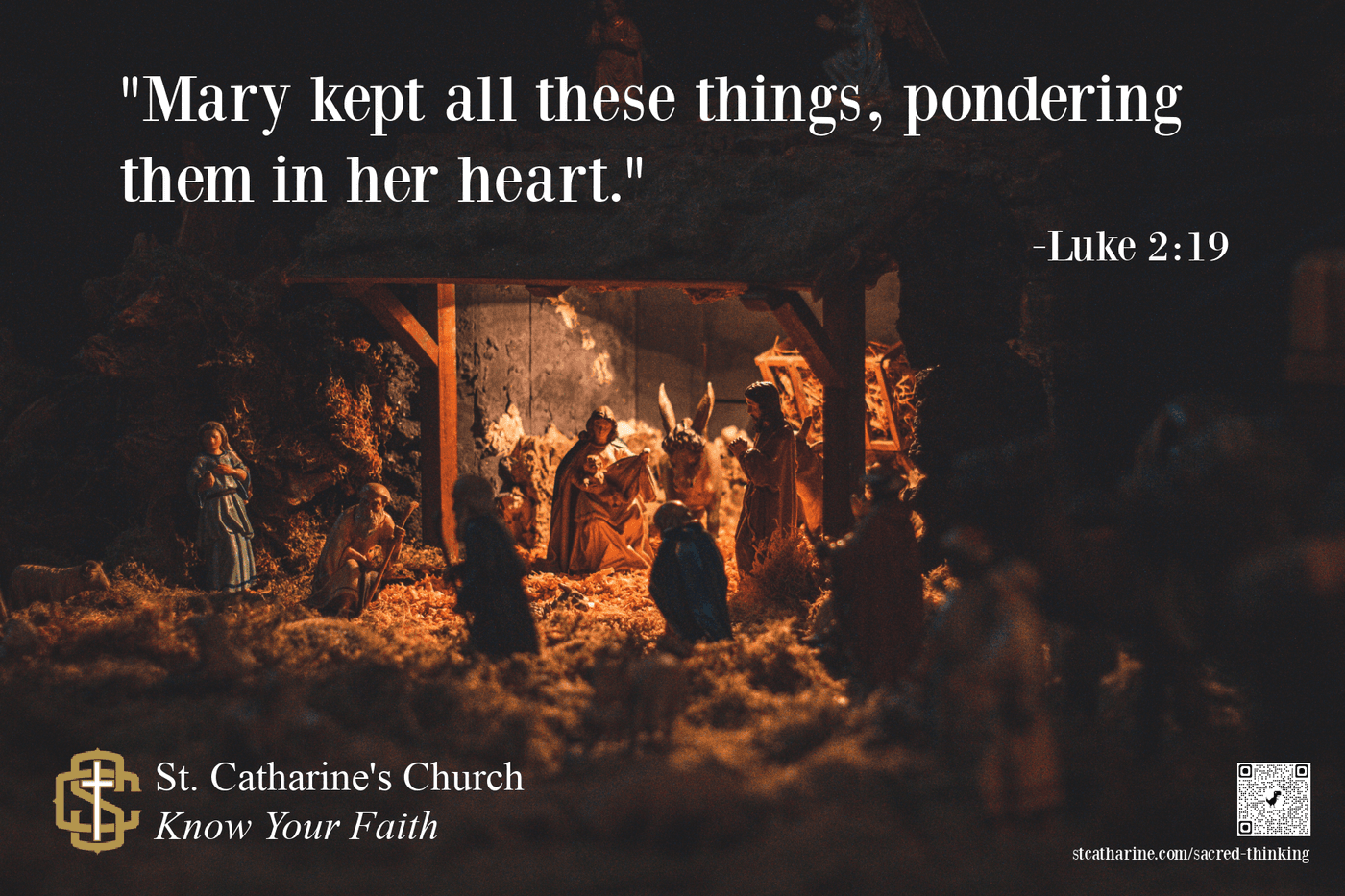

Is It a Sin to Doubt God’s Existence?
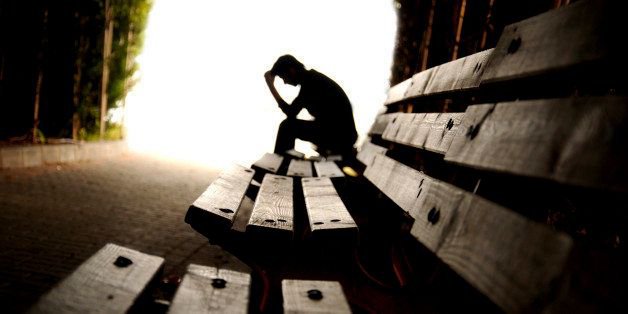
There is a kind of doubt to be avoided, but not all doubt is spiritually unhealthy.
By MATT NELSON • 11/28/2023 – Catholic Answers (www.catholic.com)
Few Christians can honestly say they have never had their belief in God tested. Most of us have encountered difficulties along the path of faith and have been tempted, perhaps when experiencing suffering and evil, to reconsider our convictions.
Not even the saints are exempt from such temptations. Mother Teresa, for example, experienced profound temptations to religious doubt. In a letter to her confessor, she wrote, “Do not think that my spiritual life is strewn with roses—that is the flower which I hardly ever find on my way. Quite the contrary, I have more often as my companion ‘darkness.’”
To some, this might appear scandalous. How can saints experience such temptations? And what should we, who are far less holy, make of our own hesitations to believe?
Before we move forward, I should clarify what I mean by the term doubt. I do not mean what Bl. John Henry Newman meant in his Apologia Pro Vita Sua when he noted, “Ten thousand difficulties do not make one doubt. . . . Difficulty and doubt are incommensurate.” Here he refers to a willful rejection of belief. In contrast, what I mean here by doubt is closer to what Newman meant by difficulty.
Doubt presupposes belief, or the acceptance of something as true based on the authority of another—and wherever belief is, doubt tends to follow. Why? Because we are keenly aware of human fallibility. We know we can (and do) get things wrong or partially right, and we know that this is true about others. So no matter how certain we might feel in our convictions, there is always a chance that a “perhaps” moment of doubt will surface. “Perhaps I am wrong,” we might admit. “Perhaps it isn’t true.”
When it comes to spiritual matters, doubt and belief come as a package deal. It is not only believers who must face this reality, but unbelievers, too. Even the most hardened atheist must eventually choose to accept a truth about what he cannot see. And he must face the fact of his own intellectual limitations. Thus, a “perhaps” moment is no less likely for the unbeliever: “Perhaps it is true,” he may privately and even painfully wonder.
The point is that doubt can be understood as a natural possibility that arises from authentic belief. Thus, Pope Benedict XVI (as Cardinal Ratzinger) wrote in his Introduction to Christianity:
Both the believer and the unbeliever share, each in his own way, doubt and belief if they do not hide from themselves and from the truth of their being. Neither can quite escape either doubt or belief; for the one, faith is present against doubt; for the other, through doubt and in the form of doubt.
Atheism, or the willful rejection of God’s existence, is a sin against the virtue of religion since God has adequately revealed himself in nature (Catechism of the Catholic Church 2125, Rom. 1:18). So doubt in the absolute sense is bad. But doubt in the form of a temptation is—like any temptation we experience passively—not a sin. In fact, inasmuch as it stimulates us to contemplate further the mysteries of Christianity, a trial of faith may refine and strengthen our religious conviction and thus be considered a good. Fr. Dwight Longenecker suggests that we “experience trials in the faith for three reasons: to strengthen us, to clarify our beliefs, and to help us proclaim the gospel.”
Doubt compels us to examine our deepest convictions about reality. And as Socrates implied in one of his famous maxims, only the examined life is worth living. Therefore, doubt makes life interesting because it forces us to think about reality. It awakens the mind and restores the will. It compels us to make new or renewed decisions about where we are going in life. G.K. Chesterton, a convert from agnosticism, understood the potential value of doubt when he remarked, “Man must have just enough faith in himself to have adventures, and just enough doubt of himself to enjoy them” (Orthodoxy).
A good illustration of the tension between doubt and belief can be found at the Council of Elrond in Tolkien’s Lord of the Rings, when Frodo vows, “I will take the Ring, though I do not know the way.” It is clear that Frodo doesn’t know how he is going to pull it off. It is also clear that his will is fixed: he will march forward despite the thousand difficulties clamoring in his imagination.
When we face doubts—or difficulties—regarding our belief as Catholics, we encounter a similar choice. Will we march forward in faith and seek out answers? Or will we turn our backs on the path we have trodden in faith? It is only when the believer chooses unbelief that doubt results in sin. It all comes down to the will.
Mother Teresa, like all the other saints who experienced severe temptations to doubt, had an iron will. When she wrote in the above letter to her confessor that she has had “more often as [her] companion ‘darkness,’” she did not end her thoughts there. In fact, the next line revealed the true depth of her faith, despite extreme trial: “And when the night becomes very thick—and it seems to me as if I will end up in hell—then I simply offer myself to Jesus.”
She overcame doubt, above all, by standing firm in her faith and entrusting herself to the Savior she knew but could not feel. The little saint of Calcutta chose to walk by faith and not by sight, and we are all called to do the same. For “the men signed of the cross of Christ,” as Chesterton muses in his Ballad of the White Horse, “go gaily in the dark.”
An Advent Idea
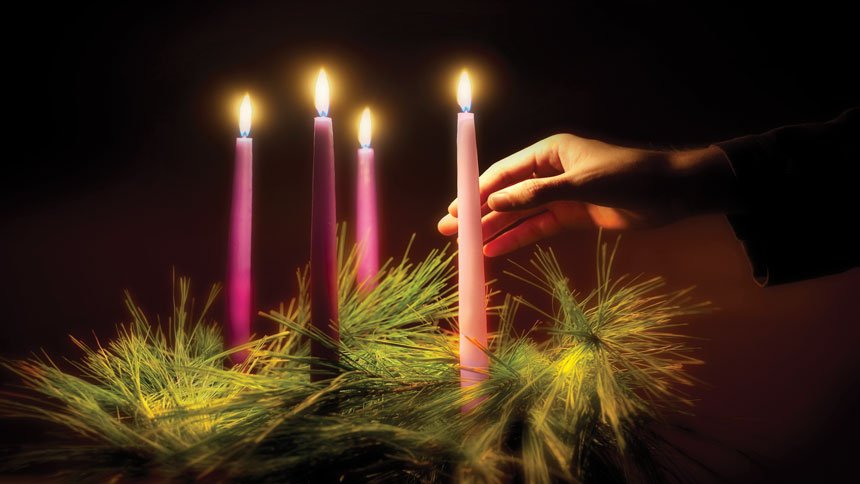
Advent means coming or approaching. Christmas is approaching and with-it special graces God wants to give us. The Gospel readings during the Sundays of Advent include St. John the Baptist encouraging us to prepare the way for Jesus. For us this means preparing ourselves for Jesus, Who on Christmas Day wants to pour His love, His life and His power into our very being.
How are we supposed to prepare for this?
Here’s what I suggest. Go to Jesus, in Eucharistic Adoration if possible, and ask Him, “What can I do this Advent to allow you, Jesus, to come to me on Christmas and be as open as possible for all you want to give me?” Do this every day during the first week or two of Advent.
Imagine a one-year-old child learning to walk beside his father. Dad is holding out his hand for his child to hold as they walk across the living room floor. Less than halfway the child sees the dog playing in the corner, lets go of dad’s hand, moves toward the dog, and falls down. Dad helps him up and he takes his dad’s hand. After a few steps the child, seeing a toy, lets go of dad’s hand and stumbles awkwardly toward the toy, falling once again. Dad helps him up again, and holding his hand, they continue.
What causes you to let go of Jesus’ hand?
If we ask Jesus, He will help us see the things that we need to do so we can keep our focus on Him, not let go, and learn to walk with Jesus. Like a father, Jesus doesn’t ridicule us when we fall, but loves how we keep getting up again.
Once you think you know what Jesus wants you to do, tell a priest or good Catholic friend about it. Tell them you came to this in prayer and ask them what they think. This is called, “testing the spirit.” It is a Scriptural practice of Christians to kind of “verify,” with another good Christian, whether something we think God is telling us in prayer is really God.
Then take the rest of Advent asking Jesus to help you do the thing you need to do to allow Jesus closer to you. Make a conscious effort to do this, every day.
Then, on Christmas Eve, thank Jesus for coming once again, into your heart and soul on Christmas. When you go to Mass thank Jesus for the special Christmas graces He pours on us during this most holy day. Thank Jesus for helping you to allow Him closer to you, for without Him we can’t do anything.
Have a most blessed Advent and a very Merry Christmas!
What is the Church?
A building? A philosophy?
A religious organization?
A group of like-minded people?
A set of moral rules? A place to belong?
… or is the Church much, much more?

Here is how to find the answers...
The Catechism on the Church
The Catechism of the Catholic Church, from paragraphs 748 to 945, beautifully explain what the Church is all about. As the Church's official teaching, this is an excellent place to begin and learn from. You can also read this section of the Catechism online by clicking HERE.
20 Answers on the Church
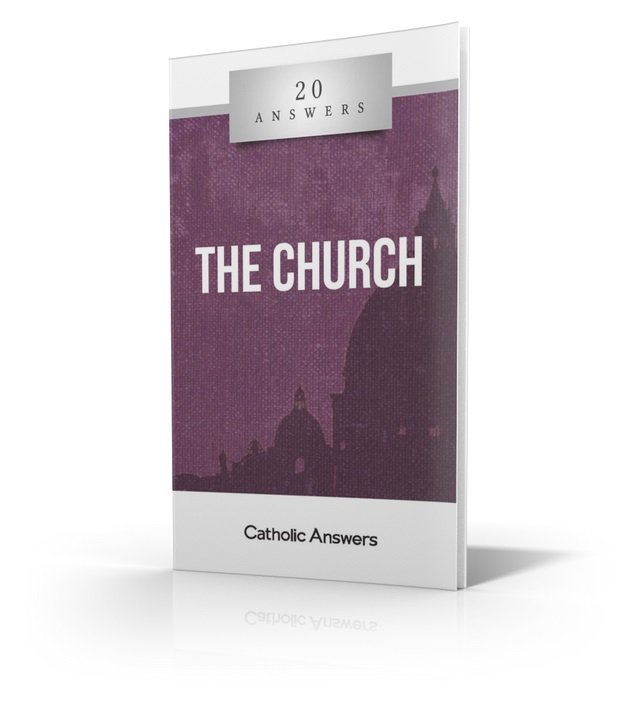
In 20 Answers: The Church you’ll find smart, solid answers to these questions and many more. Jesus founded the Catholic Church to carry on through history his mission of teaching and sanctifying his followers. Though on an earthly level it is made up of sinners, it is holy, because Jesus its head is holy. Though its human leaders are fallible, it never fails to proclaim authentic Christian truth, because it is protected by the Holy Spirit. It is Christ’s mystical body and his spotless bride, his chosen instrument of salvation for the world.
You can find this book in the book racks at the north and south entrances of our church, or by clicking HERE.
The Early Church was the Catholic Church
The Catholic Witness of the Fathers in Christianity's First Two Centuries
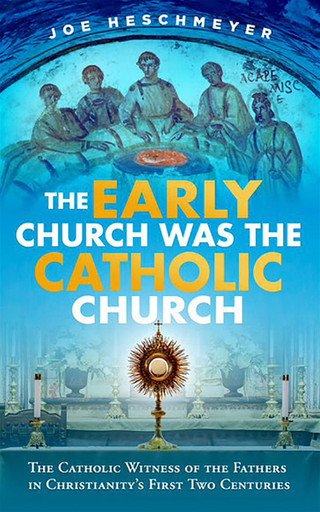
When it comes to the history of Christianity, the Catholic Church makes a pretty bold claim: that the earliest Christians were Catholics—and that their beliefs and practices have continued unbroken all the way to the present-day Church. But the Last Supper was a long time ago, and for hundreds of years Protestants have been attacking Catholic claims about Christianity's historic origins, traditions, and practices. They prefer to believe that the earliest, "purest" Church had much more in common with their own congregations and doctrines.
So, how can you be sure the Catholic Church has it right?
You’ll get your answer from Joe Heschmeyer, who deftly joins the Catholic past and present in The Early Church Was the Catholic Church. Focusing on the first two centuries (before any Roman "apostasy" is said to have taken place) and bedrock principles of Christian belief, authority, and worship, Heschmeyer digs deep into the words and actions of those who lived right after the apostles to refute anti-Catholic claims of how the Faith was practiced "back then."
You can find this book online HERE.
7 Big Myths About The Catholic Church
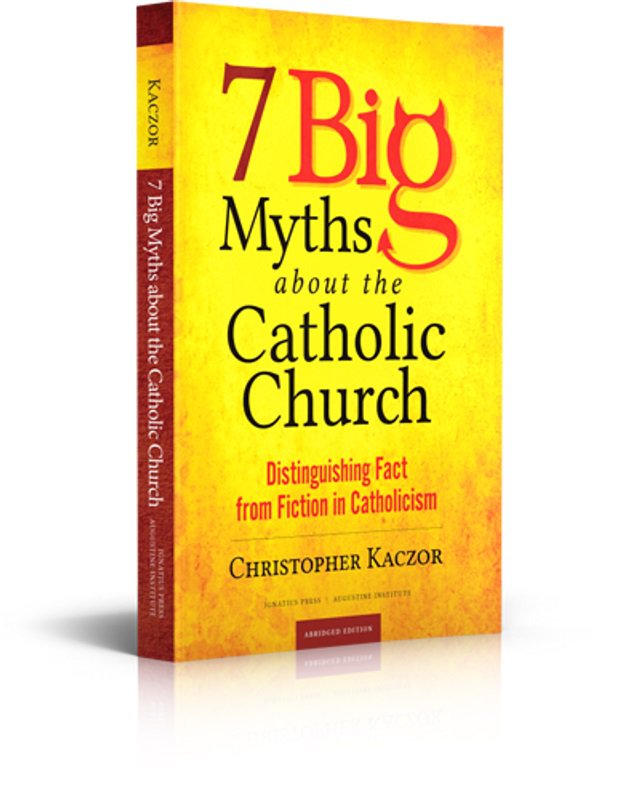
The Roman Catholic Church has long been the target of suspicion and hostility. But how much of this is based on ignorance and prejudice and how much is the fruit of thoughtful consideration of the facts?
This book separates fact from fiction. Without excusing or justifying wrongdoing, author Christopher Kaczor clarifies official Catholic teaching and demonstrates that much popular opinion about Catholicism is based on misunderstanding and misinformation. He also provides robust and lucid arguments for Catholic belief and practice.
You can find the book online HERE.
The Splendor of the Church
An audio presentation of a conference titled, "The Splendor of the Church" will provide the listener with expert insights into the Church from fom a Biblical perspective. You can find the talks on Formed HERE.
Below are the minute marks of where you can find each individual talk and the name of the speaker.
0:00 Dr. John Bergsma - The Priesthood in John
1:02 Dr. Brant Pitre - Pentecost and Confirmation
2:02 Dr. Scott Hahn - The Church in St. Paul: Corinthians
3:18 Dr. John Bergsma - The Church as Temple
4:21 Dr. Brant Pitre - Did Jesus Intend to Found a Church
5:26 Dr. Scott Hahn - The Church in St Paul: Romans
6:42 Dr. John Bergsma - The Church as Bride
7:49 Dr. Brant Pitre - Jesus and the Kingdom of God
8:56 Dr. Scott Hahn- The Church in St. Paul: Ephesians
Figuring out the Church
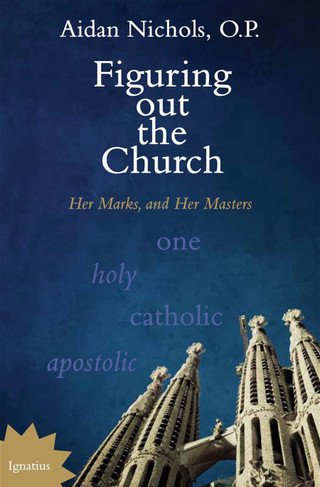
Here is a book for more serious readers...
The Church is a mystery. Believers who want to enter more deeply into that mystery will reflect on the Church's basic characteristics, the "marks of the Church": what it means for the Church to be one, holy, catholic, and apostolic. Non-Catholics and nonbelievers looking to appreciate how Catholics regard the Church also will desire to understand these "marks".
In this book, renowned Dominican theologian Fr. Aidan Nichols explores the Church's characteristics. Drawing on insights from four theological masters-Henri de Lubac, Jean Tillard, Hans Urs von Balthasar, and Charles Journet-Nichols seeks to help Catholics and non-Catholics to "figure out" the Church, on at least a fundamental level. The four masters in question do not claim to exhaust the mystery of the Church, nor does Nichols. They do, however, assist the reader in going deeper into the mystery.
You can find the book online HERE.


